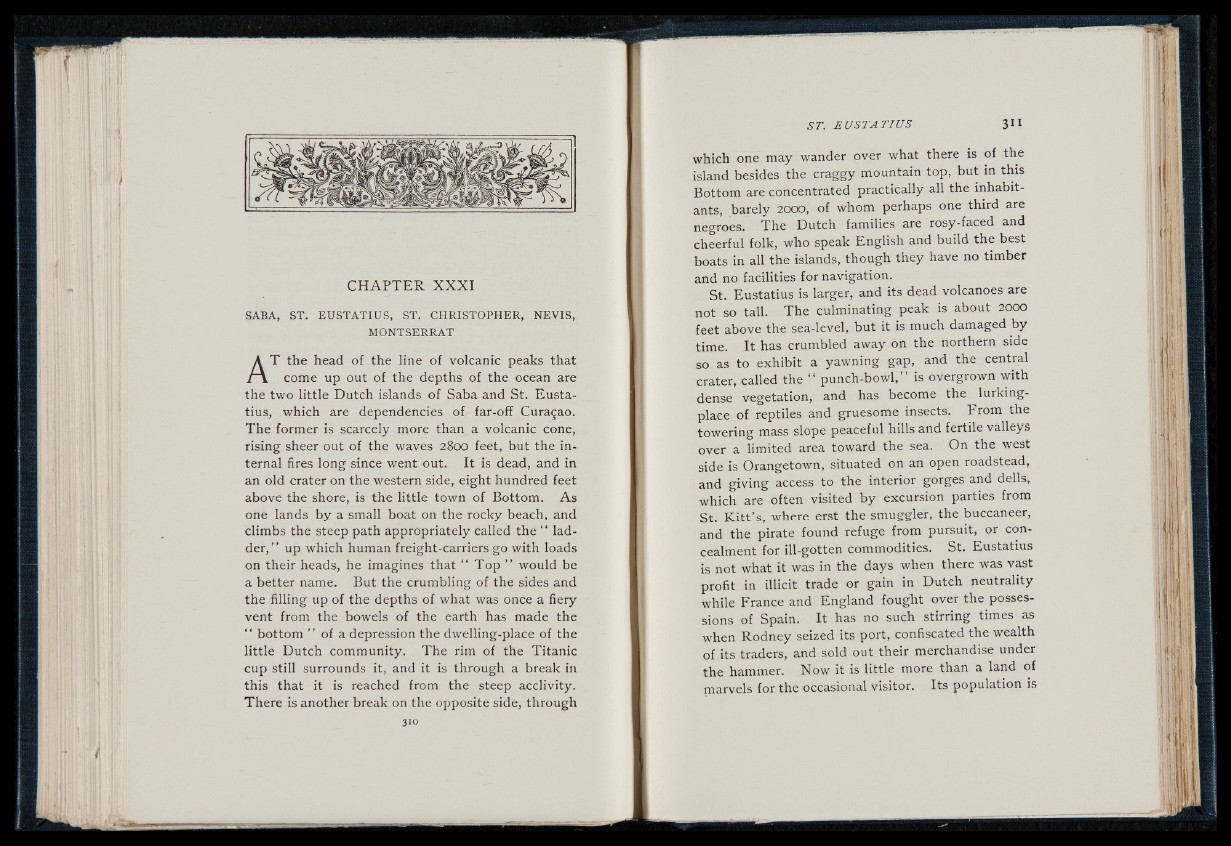
C H A P T E R X X X I
S A B A , S T . E U S T A T I U S , S T . C H R I S T O P H E R , N E V I S ,
M O N T S E R R A T
AT the head of the line of volcanic peaks that
come up out of the depths of the ocean are
the two little Dutch islands of Saba and St. Eusta-
tius, which are dependencies of far-off Curasao.
T he former is scarcely more than a volcanic cone,
rising sheer out of the waves 2800 feet, but the internal
fires long since went out. It is dead, and in
an old crater on the western side, eight hundred feet
above the shore, is the little town of Bottom. A s
one lands by a small boat on the rocky beach, and
climbs the steep path appropriately called the “ ladder,”
up which human freight-carriers go with loads
on their heads, he imagines that '! Top ” would be
a better name. But the crumbling of the sides and
the filling up of the depths of what was once a fiery
vent from the bowels of the earth has made the
“ bottom ” of a depression the dwelling-place of the
little Dutch community. The rim of the Titanic
cup still surrounds it, and it is through a break in
this that it is reached from the steep acclivity.
There is another break on the opposite side, through
310
which one may wander over what there is of the
island besides the craggy mountain top, but in this
Bottom are concentrated practically all the inhabitants,
barely 2000, of whom perhaps one third are
negroes. T he Dutch families are rosy-faced and
cheerful folk, who speak English and build the best
boats in all the islands, though they have no timber
and no facilities for navigation.
St. Eustatius is larger, and its dead volcanoes are
not so tall. The culminating peak is about 2000
feet above the sea-level, but it is much damaged by
time. It has crumbled away on the northern side
so as to exhibit a yawning gap, and the central
crater, called the “ punch-bowl,” is overgrown with
dense vegetation, and has become the lurking-
place of reptiles and gruesome insects. From the
towering mass slope peaceful hills and fertile valleys
over a limited area toward the sea. On the west
side is Orangetown, situated on an open roadstead,
and giving access to the interior gorges and dells,
which are often visited by excursion parties from
St. K i t t ’s, where erst the smuggler, the buccaneer,
and the pirate found refuge from pursuit, or concealment
for ill-gotten commodities. St. Eustatius
is not what it was in the days when there was vast
profit in illicit trade or gain in Dutch neutrality
while France and England fought over the possessions
of Spain. It has no such stirring times as
when Rodney seized its port, confiscated the wealth
of its traders, and sold out their merchandise under
the hammer. Now it is little more than a land of
marvels for the occasional visitor. Its population is